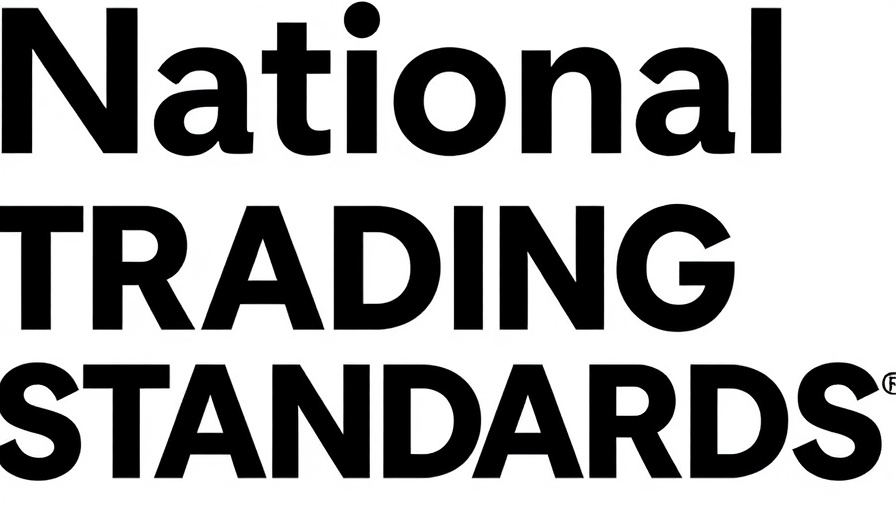
Understanding the Impact of Material Information Guidance Changes
The recent announcement regarding the withdrawal of the Material Information guidance has sent ripples through the UK property market, particularly affecting property owners and investors. Originally introduced to improve transparency and consumer decision-making in property transactions, this guidance was established under the Unfair Trading Regulations 2008. However, as of May 8, 2025, all previous guidance has been superseded by the newly enacted Digital Markets, Competition and Consumers Act 2024 (DMCC Act).
What Led to the Withdrawal of Guidance?
The Material Information guidance aimed to standardize the information provided to consumers by property sales and letting agents, thereby creating a more informed marketplace. Since its phased introduction in late 2023, significant resources have been allocated to ensure compliance across agencies. However, the quick transition to the DMCC Act indicates a shift in regulatory focus, fostering a market that demands immediate adherence to its principles.
Some of the key reasons for this shift stem from evolving market conditions, enhanced technological frameworks, and the government’s intent to bolster consumer protection amidst increasing digital transactions. This move reflects a broader trend in various sectors where legislation must evolve in response to innovation and consumer expectations.
Higher Stakes for Non-Compliance
While the withdrawal of the guidance might suggest a relaxation of requirements, the reality is starkly different. Non-compliance with the DMCC Act entails more serious repercussions, as the Competition and Markets Authority (CMA) emphasizes the need for fairness and diligent practices in consumer interactions. In this context, property agents must navigate the potential risks associated with failing to disclose key information or engaging in misleading practices.
As the CMA outlines, agents now face significantly increased penalties compared to those under the previous framework. This places an added pressure on property professionals to expertly manage compliance while maintaining ethical standards, creating a complex landscape for agents, developers, and landlords alike.
Industry Reactions: A Call for Guidance
Industry experts have voiced their concerns regarding the implications of the withdrawn guidance. Nathan Emerson, CEO of Propertymark, pointed out that while progress is crucial, the abruptness of these changes could lead to confusion among agents and consumers. His comment highlights the delicate balance the industry must maintain in adapting to new regulatory requirements while ensuring quality service delivery.
Lesley Horton of The Property Ombudsman reinforced the necessity for ongoing support in understanding what constitutes material information. Given that agents rely on casework data to guide their operations, a unified communication from governing bodies will be vital in helping agents navigate this new legal landscape.
Building a Culture of Transparency
The sentiment expressed by Sean Hooker from Property Redress resonates throughout the community, emphasizing that upfront and transparent information is foundational to the property sector's efficacy and fairness. The previously established culture focused on comprehensive material information must now adjust to align with the expectations set forth by the DMCC Act.
This adjustment period serves as both a challenge and an opportunity. For property professionals, embracing transparency not only mitigates legal risks but also builds trust with consumers. Therefore, industry stakeholders must prioritize their commitment to clarifying what material information entails, fostering a climate where ethical practices lead to better business outcomes.
Future Predictions for the UK Property Market
Looking ahead, the implications of these regulatory changes will undoubtedly shape the landscape of the UK property market. As regulations evolve, property owners and investors can anticipate a more competitive environment driven by compliance, transparency, and informed consumer choice. This landscape will demand strategic adaptations from property professionals, including enhanced training, updated operational practices, and proactive engagement with consumers.
Moreover, embedding ethics into business practices will not only be beneficial from a legal standpoint but will also resonate positively in consumer perception, consequently influencing property value and market stability. The importance of material information cannot be understated, and its role in shaping a reputation for fairness will be crucial for ongoing success.
Call to Action: Be Proactive in Complying with New Regulations
For property owners and investors, staying informed and proactive in understanding these changes is paramount. Engaging with industry resources, attending training sessions, and collaborating with legal experts can significantly reduce the risk of non-compliance. As the market adapts to these newfound expectations, equipping yourself with knowledge and strategies will position you favorably as a trustworthy participant in the UK property market.
 Add Row
Add Row  Add
Add 





 Add Row
Add Row  Add
Add 








Write A Comment